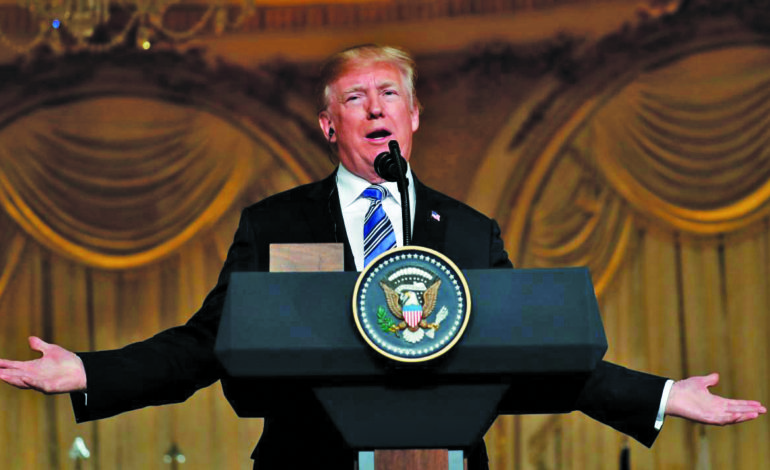WASHINGTON, D.C. — The Trump administration rolled out a long-awaited overhaul of U.S. arms export policy on Thursday aimed at expanding sales to allies, saying it will bolster the American defense industry and create jobs at home.
The White House aims to speed up arms deal approvals and increase the role of senior U.S. officials, including President Trump, in closing foreign sales, while giving greater weight to business interests in sales decisions that have long prioritized human rights.
The initiative, as first reported by Reuters, adds the full weight of government to Trump’s direct personal role in pushing arms sales during interactions with foreign heads of state.
Companies that stand to benefit from the new policy most include Boeing Co. and the other top U.S. defense contractors, Lockheed Martin Corp., Raytheon Co., General Dynamics Corp. and Northrop Grumman Corp.
The plans have been in the works for a year, with White House trade adviser Peter Navarro playing a major role in driving the project forward. Navarro is best known for pushing the administration to take tough trade actions against China.
Human rights will now carry equal weight alongside other considerations in planned arms sales, including the needs of allied nations and the economic loss if the U.S. contractor does not win the sale when decisions are made on whether to approve an arms deal.
“This is a balanced policy,” said Ambassador Tina Kaidanow, an official with the State Department who oversees arms export agreements. “We absolutely look at human rights as one of a set of considerations that we look at.”
The export policy explicitly states it aims to “strengthen the manufacturing and defense industrial base” and as a part of this “when a proposed transfer is in the national security interest, which includes our economic security, and in our foreign policy interest, the executive branch will advocate strongly on behalf of United States companies.”






Leave a Reply